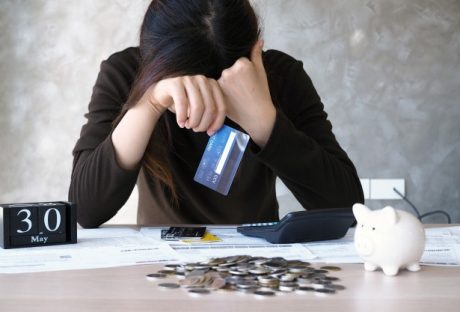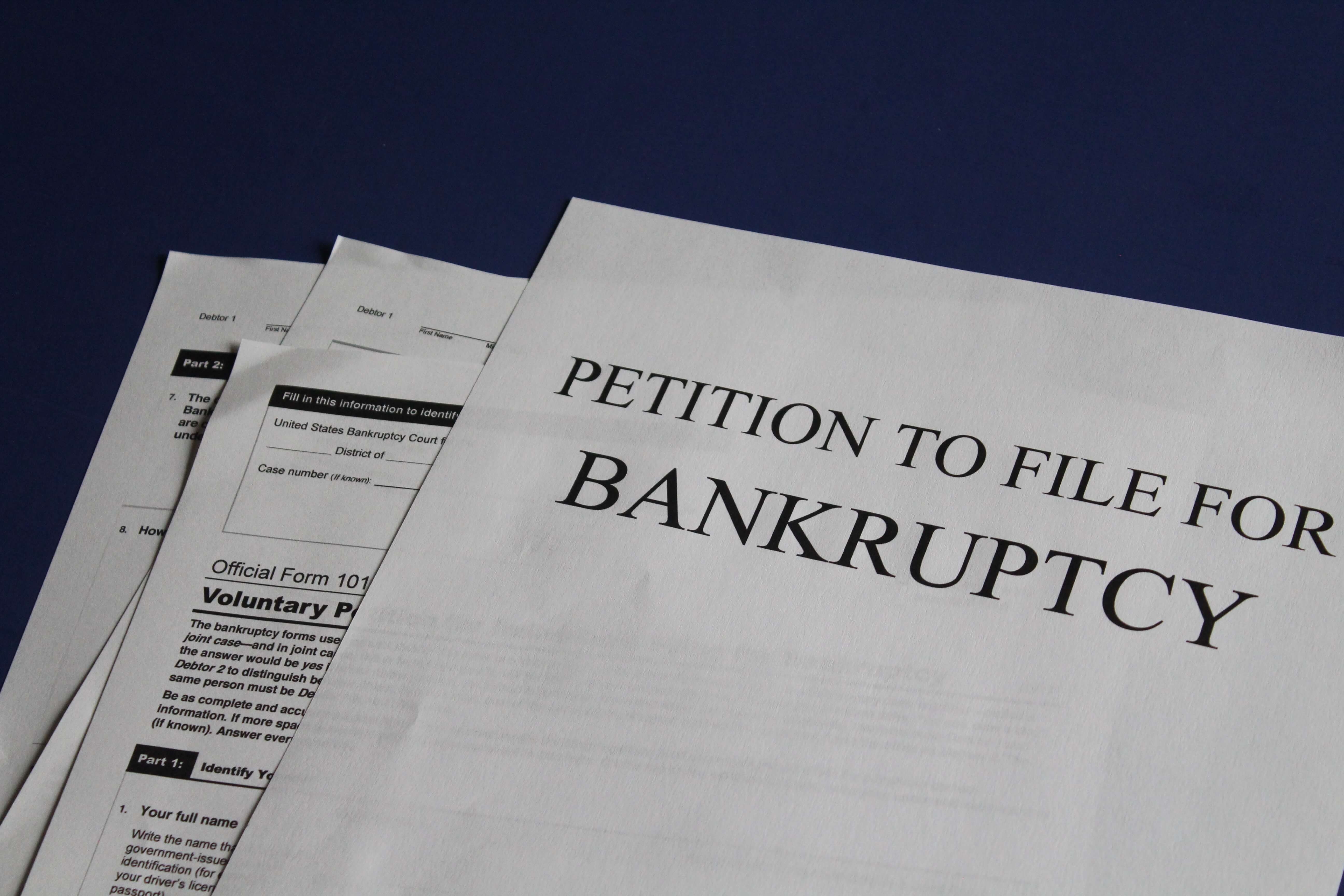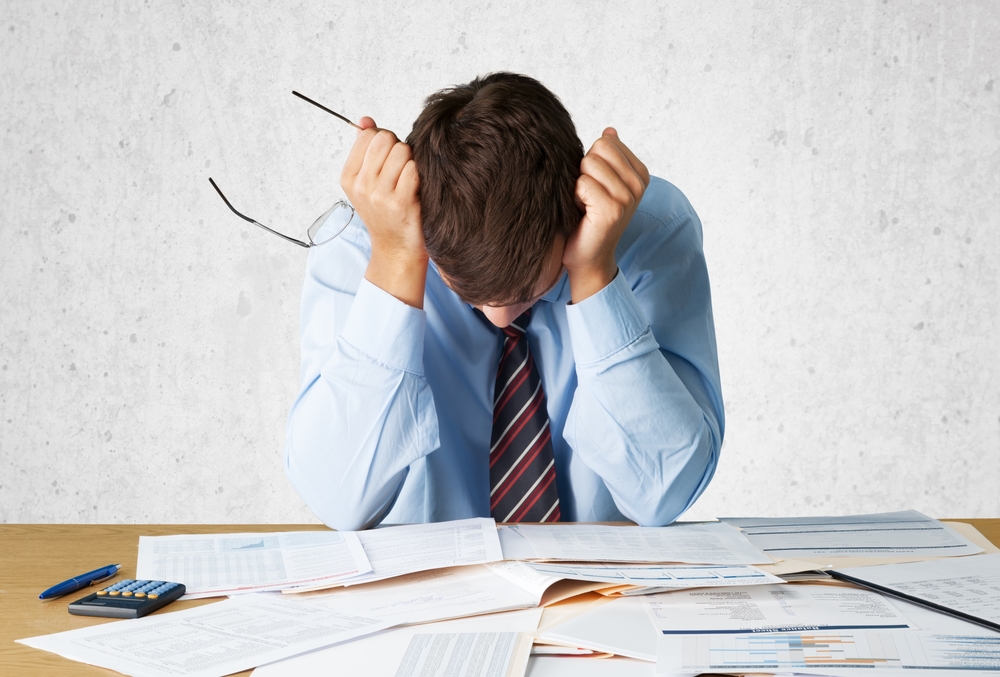Tag: Bankruptcy

Important Things You Need To Know Before Filing For Bankruptcy
The aftermath of the COVID-19 Pandemic saw a string of businesses file for bankruptcy. The United States saw many B2B businesses including, FTK Worldwide (Jewellers), Contact Transport (Logistics and Supply), and others opt for the bankruptcy route. Legal experts are of the opinion that no two bankruptcy cases are the same. They differ in terms of their exposure, risks, legalities, and the court judgment. Even if two companies file for bankruptcy under Chapter 7, their judgments and orders can be different. In this article, we speak to a leading bankruptcy Birmingham law firm that specializes in these issues. we ask them about some important things businesses and their owners need to keep in mind before filing for bankruptcy. List of Important Things you need to know before Filing for Bankruptcy 1. Chapters 7 and Chapter 13 are Important for Individuals and Businesses Legal experts suggest that solopreneur ventures and sole proprietorships that are individual-centric should go for filing bankruptcy under Chapter 7. This puts a stay to debt and credit obligations and allows individuals to even retain control over their property. Businesses that are well-established should opt for Chapter 11. This helps in keeping the business entity alive and allows for a payment restructuring plan that works to ensure complete repayment over a period of three to five years. 2. Hiring Legal Help is of High Importance It is important to understand that individuals or businesses looking to file for bankruptcy should always avail of expert legal help. If you are trying to use Google to do all the paperwork, you might get into serious trouble in the near future. Bankruptcy laws are incredibly complex and technical. In particular, Chapter 7 allows liquidation of debt to take care of financial obligations and absolve the individual from repayment. All collection attempts must stop. Subsequently, a bankruptcy trustee collects non-exempt valuable assets and sells them to pay off debt. The law discharges eligible debts, such as credit card loans, medical bills, and old utility bills. So, you need an experienced bankruptcy attorney to help you fend off the debtors, and work with the courts and the banking institutions. At the end of the day, you do not want criminal proceedings to be initiated by any of the parties. You can hire an expert in your area, such as a Florida Chapter 7 bankruptcy lawyer. A bankruptcy lawyer’s job is to help you overcome debt, so they’ll guide you through the process by offering advice or assisting you in filing for bankruptcy protection. 3. Bankruptcy does not mean All Debts go away If you were under the impression that bankruptcy is going to help you walk away scot-free think again. Legally, the following are some areas where bankruptcy will not be able to help you- Alimony Payments Student Loans Taxes on Luxury Items Taxes Child Support Payments All the above-mentioned areas and payments are not something that the court can give you relief from. If you miss your payments or taxes, new legal cases can be brought up against you in a court of law. The punishment and legal repercussions for the same will be different. For this reason, it’s a must to talk to an experienced attorney and a personal financial advisor who can help you determine other options for addressing these problems. Social workers and community leaders can also help. The government and private sectors offer programs for citizens needing financial and social support services. They’ll help you get through difficult times, so don’t hesitate to consult them. 4. Your Credit Score will get Affected Post-Bankruptcy According to leading legal experts, ten years is the period where your credit score will carry the blemish of your bankruptcy declaration. If you are looking to get loans or credit during the period, the same might get very difficult. You need to be prepared to address the credit score. Some lending companies may offer you a personal loan. But the interest rates are high. You can take the risk to recover gradually from poor credit standing. However, you’ll have to make sure that you pay your loan on time. Fortunately, there are some professional services that have come up in recent years that can help you improve your credit score within a short period of time. If you want to get back in the game, you can always avail of such services. 5. Bankruptcy can help you give Yourself a Fresh Start in Life and Business- It can be stated that most businesses that suffered because of the pandemic did so for no fault of their own. In such instances, legal experts suggest that bankruptcy can be a sound tactical and strategic decision that can be taken by businesses and individuals. Banks, lending institutions, and even the judges that will be hearing the case are already aware of the drastic and negative economic fallouts of the pandemic. In fact, there have been cases, where the banks have discussed with lenders and worked out a positive restructuring plan to help individuals and businesses affected by the pandemic. The Bottom Line Filing for bankruptcy can probably the single hardest decision you would have to take in your entire life. However, rather than make the decision an emotional one, it is best to exercise reason and proper judgment and take help from an experienced legal attorney to find your way. Read Also: Debunking 7 Notorious Bankruptcy Myths What are the types of debt that can be discharged in bankruptcy?
READ MOREDetails
What are the types of debt that can be discharged in bankruptcy?
When it comes to unmanageable debts, it is common to think for a bankruptcy to avoid further issues. The law gives us the opportunity to discharge our debts through bankruptcy in order to recover our financial status. In this article, we are going to talk about the types of debt that can be discharged in bankruptcy. Some of the debts cannot be discharged, but they can be restructured to allow you to pay them easily. Others can be completely eliminated, which will give you the opportunity to keep most of your belongings, rather than selling them to pay off. How does it work? There are two main types of bankruptcy that can be found in Chapter 7 and 13. “Chapter 7 allows you to clean a great variety of debts in a short period of time, while the later Chapter is used to keep your assets in touch.” says Bankruptcy Lawyer Boca Raton With some cases, you’ll have to sell some of your property to pay off creditors. However, if you don’t own much property, you might be qualified as a “no asset” case, which would save you a lot of headaches. Debts that can be forgiven by Chapter 7 include the following: Personal loans Medical Bills Credit card debt Utility bills Repossession deficiency balances Auto accident claims Lease debts Student loans Attorney fees Civil court judgments. With Chapter 13, you can reorganize and consolidate your payments to prevent having any penalties. This way, you can pay most of your debt in a period of three to five years. Upon completion of the repayment plan, you will be discharged by most of the debts that remain. This Chapter is suitable for individuals who wish to keep their assets and those whose income is too high to classify for Chapter 7. To apply for Chapter 13, you must have a solid source of income and enough money left to add them towards your new payment plan. Debts cleaned by Chapter 13: Unsecured Debts Medical Bills Personal Loans Credit card debt utility bills lawsuit judgments income tax obligations The chances are that you’re going to repay some of the amounts through the repayment plan, but the remaining will be discharged. 1. Secured Debts : This chapter allows you to remove debts such as a second mortgage through lien stripping. This way, it will be marked as a non-priority unsecured debt It is important to check all of your debts whether they can be split up. For example, you can split your car loan into two parts - secured & unsecured. Obviously, the secured portion must be paid, while the other one will disappear after the repayment plan is completed. Debts discharged ONLY by chapter 13 Debts accumulated through a property settlement agreement in a divorce Retirement account loans Fines & Penalties owed to the government Condominium Fees Debts from previous bankruptcy that were denied for discharge Debts from malicious damage to a property What Bankruptcy can’t discharge Of course, you can’t discharge all debts using these two Chapters. By using the first one, you will still have to repay the debts after discharge. While using the second, the debts will remain after the repayment plan is completed. Furthermore, if you’d like to keep your personal belongings such as a house or a car, you can’t omit payments Non-dischargeable debts: Debts accumulated due to a personal injury caused by driving under the influence. Student loans Fines and penalties for violating laws Child & Family support Income tax debts within the past three years. If your creditor is against your request to discharge the following debts, they might be classified as non-dischargeable. Debts from willingly causing an injury to a person or property Debts owed due to a divorce settlement Debts due to fraudulent activity Credit purchases for luxury goods within the last two months. Bankruptcy will surely not solve your financial problems, but it will ease your situation, allowing you to make timely payments and recover quickly. Read Also : Debunking 7 Notorious Bankruptcy Myths Major Financial Problems That Can Affect A New Business What Are The Benefits Associated With Crowdfunding For Businesses?
READ MOREDetails
Debunking 7 Notorious Bankruptcy Myths
Bankruptcy is a serious step in anyone’s life and can have serious consequences. However, in many cases, bankruptcy is the only way out for some and can bring about the much-needed change as it helps them get rid of old debts. Understanding how bankruptcy affects you is key when deciding whether to file for bankruptcy with the help of experienced attorneys such as the BK Lawyers. People often turn to familiar people who have been through the same thing or try to find answers regarding bankruptcy on the internet. And while in some cases this might provide the answers they seek, in others, it may bring a lot of misinformation. There’s no reason to turn to unreliable sources for advice when in most cases bankruptcy attorneys don’t charge the initial consultation during which they can provide answers to all the questions you may have about the process. Therefore, we recommend consulting an experienced attorney before consulting the internet. To help you better understand bankruptcy, we are going to debunk some of the most common myths. You Can’t Travel Overseas after Filing : Many people believe filing for bankruptcy prevents you from traveling overseas. However, the truth is that a trustee will let you travel overseas as long as you make the required payments and provide the required information. You’ll also need to provide financial information regarding the trip, for example, who’s financing it, where you’re traveling, etc. Filing for Bankruptcy Costs a Lot : As we mentioned, the initial bankruptcy consultation is usually free. Reliable sources you can consult about bankruptcy include trustees, insolvency experts, and AFSA. You’ll Love Everything : One of the most common myths is that filing for bankruptcy means you’ll lose all your assets in order to pay off your debt. Depending on the debt, you may be allowed to keep a lot of assets including your household items, furniture, and appliances. You may keep a significant portion of your balance to cover the costs of living. In some cases, you may be allowed to keep your vehicles to a certain value, as well as tools of the trade. However, most people worry about losing their home. And even if your home has to be sold to cover your debts, you may arrange to purchase it from the bankruptcy trustee. Your Earning Will be Limited : There are no limits to your earning when you file for bankruptcy. However, if you earn more than a certain level you’ll need to make some contributions every year during the period of bankruptcy. The Debts you leave off the Bankruptcy Form are Not Included : When filing for bankruptcy you need to submit a form listing all your assets and debts. This form is called a Statement of Affairs form. Leaving information out of this form is considered an offense for which you may be criminally prosecuted. While you need to fill out the form as precisely as possible, leaving out a debt unintentionally will not affect whether that debt will be included in the bankruptcy. You Have to File for Bankruptcy if You Can’t Pay Your Debts : There are other ways to cover your debts, but in most cases, bankruptcy is the most effective one. Bankruptcy has a minimal impact on your finances if you’re not able to cover your debts through selling assets and earnings. IF you have a higher income or have reasons to avoid bankruptcy (if you’re a CEO) you can refinance your home, arrange a debt agreement or make informal arrangements to cover the debt. You’ll Never Get a Loan Again : While your bankruptcy is recorded in the credit report seven years after filing and it’s recorded in the NPII, there are still ways to help people with bankruptcy get back on their feet. Credit providers are willing to assist individuals who filed for bankruptcy to get a loan despite that.
READ MOREDetails















